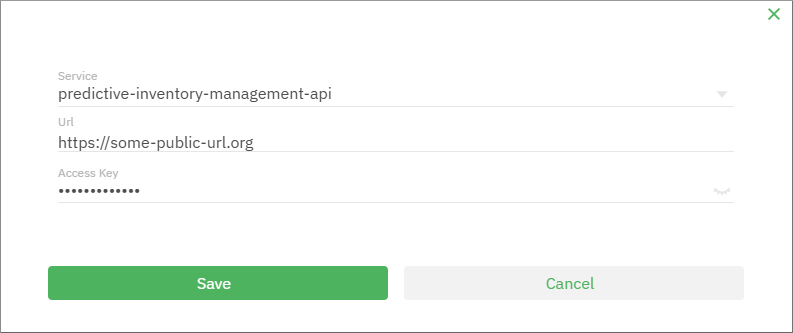Webhooks
Webhooks are automation settings that enable SBS to notify an external application or service about events that took place in SBS. For example, you can set up a webhook that notifies your own server whenever a tax declaration in Tax Declarations Service has finished processing.
Prerequisites
To set up a webhook in SBS, you need the following:
- A public API endpoint (URL) capable to accept HTTP POST requests. This may be a server or a cloud service running on some platform of your choice. The most important requirement is that it should capture POST requests sent to it by SBS.
- An API access key for the URL above, in order to prevent unauthorized access.
How it works
Whenever a process takes place in SBS that you want to be notified about (e.g., when a tax declaration finishes), SBS will post data to your designated URL. The POST request will provide your designated API access key in the x-api-key HTTP header. The actual POST payload is in JSON format (application/json) and its structure depends on the SBS service where the event took place.
After receiving the JSON data, your server may further process the received information in any way that is meaningful for your business case. For example, your server may send a notification email, or push a Websocket message to one or more recipients.
Set up a webhook
To set up a new webhook in SBS:
-
Sign in to the SBS Console.
-
In the left-hand side navigation menu, click Applications.
-
Click the application for which you would like to configure the webhook.
-
Click the Webhooks tab.
-
Click
 Add. A dialog box appears.
Add. A dialog box appears. -
Select an SBS service name, and then enter the URL of your server and the service access key required to post data to it, for example:
 Only some SBS services are currently webhook-ready. See Webhook-ready services.
Only some SBS services are currently webhook-ready. See Webhook-ready services. -
Click Save.
Webhook-ready services
The SBS services that are currently ready to send notifications through webhooks are listed below. Visit the link of each service to learn more about the event types that trigger webhooks and the expected JSON payload.